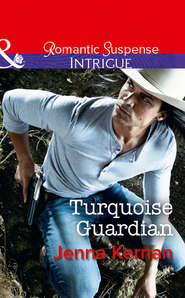По всем вопросам обращайтесь на: info@litportal.ru
(©) 2003-2025.
✖
Firewolf
Автор
Год написания книги
2019
Настройки чтения
Размер шрифта
Высота строк
Поля
Not here, he thought. There was too much fuel. Too much energy for the flames to consume in the surrounding pines.
“There’s no way out,” she shouted.
He knew that. He knew they were trapped. It was not a question of if but when the fire would catch them.
Not here. Not yet.
He glanced behind them. The fire glowed red in the rearview. So close now. Ahead there was only smoke and the orange flames that raced along on either side of the road. Finally he saw it. The black earth he had been searching for. The fire had already burned the easy fuel there. He glanced back. How long did he have? A few minutes. He needed more earth, more black earth between him and what chased them. He needed a place to survive the burn-over.
He went as far as he could, hoping, praying it was far enough. Knowing if he went any farther he would not have the moments he needed to prepare.
Dylan hit the brakes.
“What are you doing?” yelled Meadow. “Go! Go!”
He reached across the gap between them and dragged her out of the truck by her wrist. She didn’t fight him, just locked her jaw and allowed him to pull her behind him. He grabbed his rake and thrust it at her. She clutched it in her free hand, the other still gripping her camera. Then he seized his pack and Pulaski ax from the utility storage box in his truck bed. No time to talk. No room for the bottles of water he always carried. He glanced about as he judged the wind and the flames, wishing the crowns of the trees had already burned. Then he rushed them off the embankment to the black earth. The road would help break the flames, but the truck... Were they far enough to be clear of the gas tanks? He tugged her along, running into the smoking black soil that crunched beneath his construction boots. Choosing his spot because he was out of time, he went to work with the ax breaking the soil, tearing away the burned vegetation by the roots, digging a trench. The ground was so hot. He’d never thought he’d have to deploy his fire shelter. After all the training films and practice and all the fires he had fought, Dylan really had believed that he could control the situation, stay ahead of the fire line and always have a viable escape plan. Yet, here he was.
“What are you doing?” she yelled.
The roar was louder and the hot wind rushed past them.
“Rake that away!” he yelled.
He broke more soil, digging deeper and glancing at the approaching wall of flame.
She pushed the tripod down the front of her shirt before using the fire rake to pull away the roots and brush he cleared with the ax.
“A grave?” she asked.
He paused to stare at her. She looked back with a calm that terrified him because he saw that she was ready to die.
“Fire shelter,” he called.
Her brows lifted and he could not tell if she was relieved or disappointed.
No time now.
“That comes off.” He tugged at her shirt.
“What?”
“Polyester. It melts.” He dragged the shirt over her head. She dropped the rake. The camera tumbled free, and she stooped to her knees to snatch it up again and yelped at the contact of her bare knee with the smoking ground. He went for his pack, grabbing the flame-retardant shirt he wore to fight fires and tugged it on. It would be his back between the shelter and the flames.
“This, too?” She lifted the edge of the flimsy scrap of fabric that was her skirt.
He nodded and dropped the camel pack in the ditch, then took his gloves and radio, but nothing else. He’d never heard of two people deploying in a shelter that was designed for one.
He estimated the wind was reaching fifty miles an hour now. If he lost the shelter to the wind they were both dead. He dropped to his knees, already tugging the fire shelter from the nylon sheath.
“That looks like a Jiffy Pop bag,” she said.
“Come!” he roared.
She dropped before him and he enveloped her, forcing her down to the earth and into the shallow ditch he had made. The roar grew louder, like a jet engine that went on and on.
He got the shelter over them and used the hand straps to tug the edges about them. His feet slid inside the elastic and he braced, holding himself up on his elbows.
“It’s hot,” she called, wriggling. “The ground—it’s too hot. I’m burning.”
“Stay still.” It was hotter outside, he knew. Five hundred degrees and rising, he thought, his training providing him the information.
“This isn’t going to stop it. It’s thin as one of those emergency blankets.”
Except this was two-ply. A silicon layer and the reflective outer foil.
“We’ll cook alive!” she yelled.
It was possible. Not all deployed wildfire fighters survived. But mostly they died from the heated gases that scorched their lungs until they could not breathe.
“Stick your face in the dirt and take shallow breaths,” he shouted in her ear to be heard above the roar. The explosion that shook them told him that his truck tires had blown. The gas tank would be next. Flying debris could rip the shelter. If that happened, they would die here.
The fire shield now seemed a living thing that he had to wrestle to hold down about them. The heat intensified until he felt as if the skin on his back burned. Every time the shelter touched him, it seared. He kept his elbows pinned and punched at the shelter, creating an air space. Each breath scalded his lungs. He took shallow sips of air and held them as long as possible, hoping the next breath would not be his last.
* * *
MEADOW FELT THE weight of him pressing down upon her. He was so big and the ground so hot. She couldn’t breathe.
“We have to get out,” she yelled, not knowing if he heard her. The air in her next breath was so hot she choked. He pushed her head down to the ground.
“Dig!” he ordered.
She held the neck of the tripod and used the collapsed legs to dig, making a hole, and then she released her GoPro to cup her hands over her face to inhale. How could he even breathe? The air above her head was even hotter. He needed to get his face down by hers.
She dug faster, using her hands now, her acrylic nails raking soft sand as she burrowed like a ground squirrel. “You, too!”
She gasped at the intake of hot air into her throat.
He wriggled forward, his cheek now beside hers, his nose and lips pressing into her cupped hands. She could feel his shallow breath. Their skin was hot and damp where their cheeks met.
From somewhere outside the balloon shelter came an explosion. She flinched.
Chapter Three (#u14c721b8-bff3-5fae-b9ac-a24d6df9f612)
“Gas tank,” he shouted, clarifying what had just blown up.
The roaring went on and the shield fluttered and bucked, reminding her of the slack sail on a sailboat.
Ready about, her father would call, and the boom would swing over her head. As the smallest and quickest, she was allowed to scramble up to the foredeck to tie off the lines and drop the buoy between the ship and the dock.











